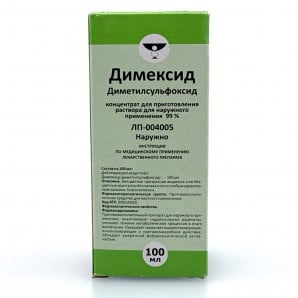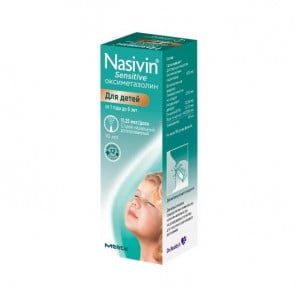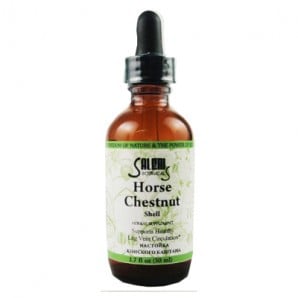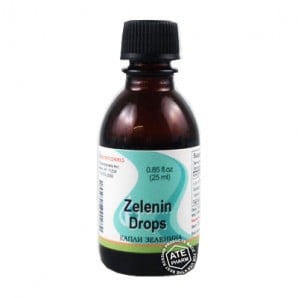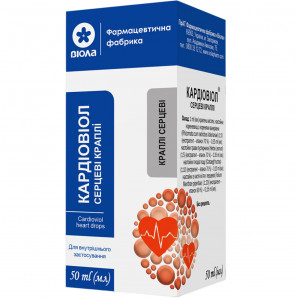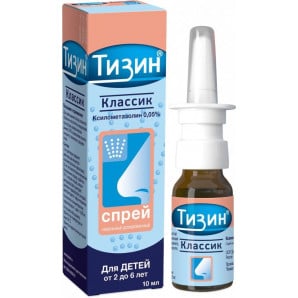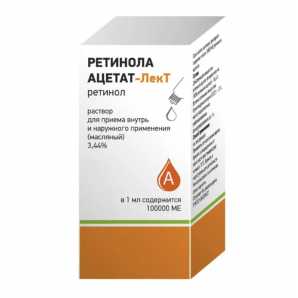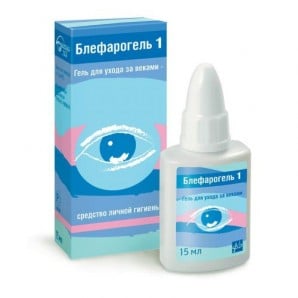This information is for general purposes only and should not be considered as medical advice. Always consult with a qualified healthcare professional for any medical concerns or questions you may have.
pharmachologic effect
A vasoconstrictor drug for local use in ENT practice (decongestant). Xylometazoline has an alpha-adrenomimetic effect: it causes a narrowing of the blood vessels of the nasal mucosa, eliminating edema and hyperemia of the mucous membrane of the nasopharynx. Xylometazoline also reduces concomitant hypersecretion of mucus and facilitates drainage of nasal passages blocked by secretions and, thus, improves nasal breathing with nasal congestion.
Otrivin is well tolerated by patients with sensitive mucous membranes; its effect does not interfere with mucus separation. Otrivin has a balanced pH value characteristic of the nasal cavity.
Menthol and eucalyptol contained in the preparation have a cooling effect on the nasal mucosa, giving a feeling of freshness.
In therapeutic concentrations, Otrivin does not irritate the mucous membrane, does not cause hyperemia.
The action occurs 2 minutes after application and lasts for 12 hours.
In vitro studies have shown that in humans, xylometazoline inhibits the infectious activity of rhinovirus, which causes the common cold.
Pharmacokinetics
When applied topically in recommended doses, it is practically not absorbed; plasma concentrations are below the detection limit.
Indications
- acute respiratory diseases with rhinitis;
- acute allergic rhinitis;
- hay fever;
- sinusitis;
- eustachyitis;
- otitis media (to reduce swelling of the mucous membrane of the nasopharynx);
- preparing the patient for diagnostic manipulations in the nasal passages.
Contraindications
- Hypersensitivity to xylometazoline and other components of Otrivin;
- arterial hypertension;
- tachycardia;
- severe atherosclerosis;
- glaucoma;
- dry rhinitis or atrophic rhinitis;
- hyperthyroidism;
- condition after transsphenoidal hypophysectomy;
- surgical interventions on the meninges (in the anamnesis);
- children's age up to 12 years (nasal spray dosed 0.1%).
Precautions: diabetes; pheochromocytoma; cardiovascular diseases (including coronary heart disease, angina pectoris); prostatic hyperplasia; with increased sensitivity to adrenergic drugs, accompanied by insomnia, dizziness, arrhythmia, tremor, increased blood pressure.
Side effects
Determination of the frequency of adverse reactions: very often ≥10); often (≥1 / 100, <1/10); infrequently (≥1 / 1000, <1/100); rarely (≥1 / 10,000, <1/1000); very rarely (<1/10 000).
On the part of the immune system: very rarely - hypersensitivity reactions (angioedema, rash, itching).
From the nervous system: often - headache; rarely - insomnia, depression (with prolonged use in high doses).
From the sensory organs: very rarely - a violation of the clarity of visual perception.
From the cardiovascular system: rarely - palpitations, increased blood pressure; very rarely - tachycardia, arrhythmia.
From the respiratory system: often - irritation and / or dryness of the mucous membrane of the nasopharynx, burning, tingling, sneezing, hypersecretion of the mucous membrane of the nasopharynx.
From the digestive system: often - nausea; rarely - vomiting.
Local reactions: often - burning sensation at the site of use.
If any of the above side effects are exacerbated, or the patient has noticed any other side effects, he should inform the doctor.
Overdose
Symptoms: xylometazoline when applied locally in excessive doses or if taken orally, can cause severe dizziness, increased sweating, a sharp decrease in body temperature, headache, bradycardia, increased blood pressure, respiratory depression, coma and cramps. Following an increase in blood pressure, a sharp decrease can be observed.
Treatment: appropriate supportive measures should be taken in case of any suspicion of an overdose, in some cases, immediate symptomatic treatment is indicated under the supervision of a doctor. These measures should include monitoring the patient for several hours. In case of severe poisoning with cardiac arrest, resuscitation should last at least 1 hour.
special instructions
It is not recommended to be used continuously for more than 10 days.
Do not exceed recommended doses, especially in children and elderly patients.
Prolonged (more than 10 days) or excessive use of Otrivin can cause a "rebound" effect (drug rhinitis) and / or atrophy of the nasal mucosa.
Influence on the ability to drive vehicles and control mechanisms
Xylometazoline does not affect the ability to drive vehicles and control mechanisms.
Elderly
Do not exceed recommended doses and duration of use of Otrivin, especially in elderly patients.
Pregnancy and lactation
Otrivin should not be used during pregnancy.
During lactation, use is possible only under the supervision of a doctor and after a careful assessment of the risk-benefit ratio for the mother and the fetus. Do not exceed the recommended dose.
Drug interaction
Xylometazoline is contraindicated in patients receiving MAO inhibitors at this time or receiving them within the previous 2 weeks.
The simultaneous use of tri- or tetracyclic antidepressants and sympathomimetic drugs can lead to an increase in the sympathomimetic effect of xylometazoline, so this combination is recommended to be avoided.
Mode of application
Intranasally.
Adults and children over 12 years of age: 1 injection in each nasal passage 3 times / day.
Do not use more than 3 times / day.
It is recommended to be applied the last time immediately before bedtime.
Storage conditions and shelf life
Otrivin should be stored out of the reach of children at a temperature not exceeding 30 ° C. Shelf life is 3 years.
Terms of sell
You can buy Otrivin without a prescription.
Additional Information
| SKU | m51 |
|---|---|
| Brand | No |
| Size | No |
| Manufacturer | No |
- Be the first to review this product
Write Your Own Review
Products on sale
Indovazin gel 45g
Regular Price: $26.99
Special Price $21.99
Captopril 20 tablets 25mg
Regular Price: $13.99
Special Price $10.99
ACC 200 powder for preparing an oral solution Orange 3g No. 20
Regular Price: $25.59
Special Price $18.99
Calcium Gluconate
Regular Price: $3.99
Special Price $2.99
Decatylen 20 tablets
Regular Price: $25.99
Special Price $19.99
Vormil Suspension 200 mg/5 ml
Regular Price: $25.99
Special Price $21.99
Streptocid 10 tablets
Regular Price: $6.99
Special Price $4.99
Exoderil cream 1% 30g
Regular Price: $50.99
Special Price $34.99
Fluconazole Teva capsules 150 mg No. 1
Regular Price: $15.99
Special Price $12.99
Also Purchased










